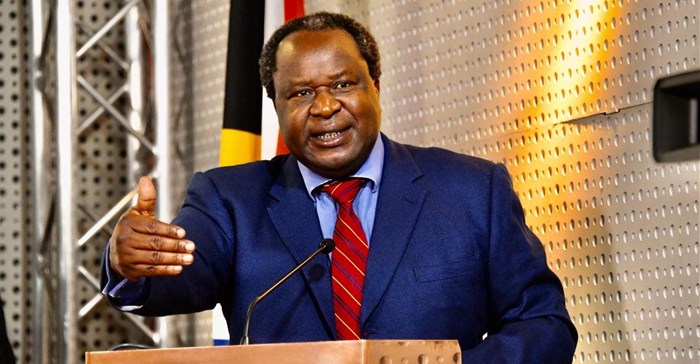
Tito Mboweni, finance minister. Source: Twitter
The stimulus package includes five main components:
- R20bn added to the health budget
- R50bn increase in social security, by an increase in the existing grant system. In addition, a Covid-19 grant of R350 a month will be paid to the unemployed who have no income.
- Tax relief measures - including fast-tracking VAT relief funds, a delay of the carbon tax payments, some corporate tax breaks on interest expenses and assesses losses; and UIF support for workers.
He added that the increase in the social grants were always means to be temporary, will be lifted in October.
The minister said the Solidarity Fund has already spent over R1bn in buying protective equipment for healthcare workers.
The combined effect of these revenue and expenditure measures have naturally changed the fiscal framework, which can, for the next few weeks, be contained within the current budgetary framework, and therefore, Mboweni said, the government is working on tabling a revised budget bill before Parliament.
Private sector intervention
He added that the private sector, in conversation with National Treasury and Reserve Bank, had come to the conclusion that South Africa can unlock between R100bn and R200bn through the national credit guarantee scheme. "That scheme would favour businesses that are R300m or less, in turnover.”
He said that that tax relief measures would also unlock additional funds, and "put more money in the pockets of people, and get the wheels of the economy moving".
In addition, the private banking sector has announced a separate set of measures to support clients, such as postponing mortgage requirements. "We need to think beyond the role of the state alone.”
"We are entitled to approach the IMF and the World Bank for funding," he said. South Africa can apply for $4.2bn from the World Bank, about $60m from the World Bank, and $1bn from the New Development Bank.
































